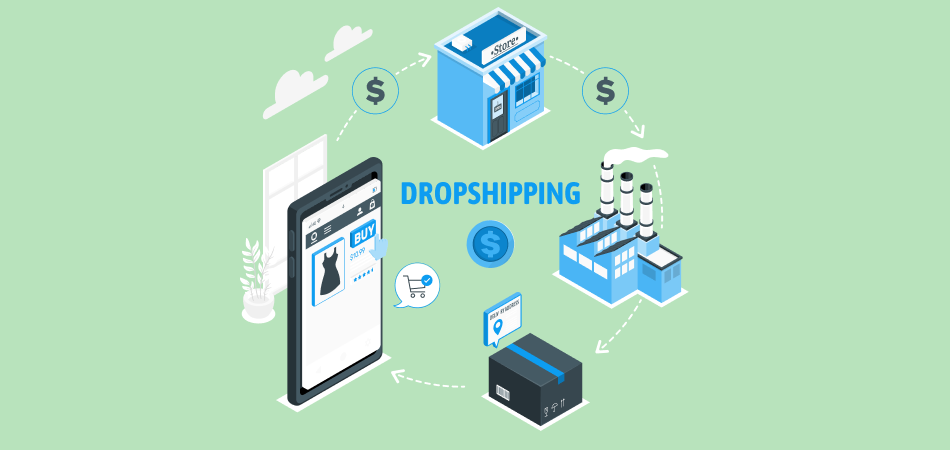6 Best Squarespace Alternatives for Creating Your Website

Squarespace is one of the best website builders for creating and customizing websites with no coding skills needed. It provides almost everything you need to make a website. In addition to the core functions you expect from a hosted website builder, including domain registration, hosting, templates, and expert support, Squarespace offers more advanced features. With built-in e-commerce, blogging, search engine optimization, and analytics tools, you can create and optimize your website to attract more visitors and grow your business.
However, Squarespace is not a solution for everyone. It offers a selection of features out of the box, but it lacks extensions that can enhance the functionality of your site.
If you want to add missing features to your sites, such as an autosave button or a form module, you're out of luck with Squarespace. No matter what you're looking for - more flexibility, a cheaper monthly plan, a better e-commerce experience - Squarespace has plenty of alternatives.
Let's have a quick look at some of the best alternatives and options.
6 Best Squarespace Competitors
Here are 6 best Squarespace alternatives that meet your needs.
WordPress
Numerically, self-hosted WordPress is by far the most popular way to create a website. WordPress powers 43.1% of all websites, which is frankly mind-boggling. In case you're wondering, Squarespace supports about 1.8% of all websites. To use WordPress, you need to install the open-source WordPress software on your virtual host, which adds a little more complexity than Squarespace.

If you are building an online business whose primary revenue comes from your site, you should seriously consider WordPress.org. It's not the easiest solution (not what it was designed for), but helps scale your site with many integrations and tools.
You can give it a try by creating a multilingual presence, adding an online store with WooCommerce, or just partnering with one of the (possibly) millions of WordPress developers. These skilled developers help you build almost any features you need to start an online business.
▪ Unlimited Customization: WordPress plugins are available for almost every website requirement, like e-commerce, multilingual websites, membership pages, booking engines, etc.
▪ Flexibility: You have complete control over your site and can easily scale to meet any growing needs.
▪ Pricing By Usage: The tool itself is free to use, so you only have to pay for the extra features you need.
▪ Technical Knowledge Needed: This CMS (content management system) required a lot of hands-on work from the start. That means you need to have some technical knowledge or be able to hire someone who does.
▪ Maintenance Responsibility: Unlike the site builder below, security updates and ongoing maintenance are not handled for you. You need to be on top of any updates.
▪ Support: WordPress doesn't provide direct support, which usually means you need to spend time searching forums and online for answers.
Wix
Wix offers the free website building plan for individuals and small businesses, while Squarespace only allows you to try it in 14 days. The free plan of Wix comes with hosting, drag-and-drop editors, and more than 500 theme templates. It’s easy to create unlimited pages for your site and drag and drop elements anywhere on the page.

The free plan of Wix requires users to adapt to a designated Wix subdomain, and there are ads on the front end of your site. Several paid plans are available, so you can start with the free version and upgrade later.
Read more about Wix vs. Squarespace.
▪ Design Flexibility: With Wix, you have a lot of control over the design of your site because templates can be changed almost at will. You can also add visual elements like galleries and animations.
▪ App Market: Wix has a wide range of applications and integration. They have not only their full-featured applications like Wix Bookings but also have hundreds of third-party applications like DSers that help you scale your business.
| Get Started Now to Grow Your Online Business with the Best AliExpress Dropshipping Tool - DSers! |
▪ Automatic Site Backup: This feature puts Wix ahead of Squarespace. Wix keeps track and a record of all the changes. As a result, you can restore your site to a previous version, which is handy if you accidentally delete something.
▪ Blog: Wix's blog is OK and SEO-friendly. But it's not the most flexible. Users are limited to a very basic layout, and the blog editor doesn't integrate well into the main website editor.
▪ Not Mobile-Friendly Enough: Wix's template is not 100% mobile responsive (unlike Squarespace). For your site to display correctly on mobile devices, you need to switch to the Mobile editor and make some changes first.
Shopify
Squarespace offers good e-commerce capabilities for smaller online stores. The only problem is that it doesn't scale well once you want to go international, do AliExpress dropshipping or add a loyalty program to your customers.

Shopify has almost become synonymous with e-commerce. As a dedicated e-commerce builder, Shopify has more features and over 6,000 apps like DSers to help you expand your online business.
These e-commerce and point-of-sale capabilities make Shopify perfect for independent entrepreneurs just starting or developing a business. If you want to start dropshipping on Shopify, this Shopify Dropshipping 101 guide will inspire you.
Read more about Shopify vs. Squarespace.
▪ E-commerce: Shopify is 100% built for its shopping cart. Every feature they have is optimized for online sales.
▪ App Store: You can easily add additional features, such as fraud prevention, dropshipping tools, and even POS solutions.
▪ Scaling: Shopify can easily scale small and large online stores. Shopify offers features such as Shop Pay that do not require new customers to register again if they have previously registered with another Shopify store.
▪ Transaction Fees: Unless you use Shopify Payments (not available everywhere), Shopify will charge a transaction fee on top of the payment for the processor (such as Stripe or PayPal).
▪ Regular Content Creation: Although Shopify comes with a blog, you can create other types of pages (such as product landing pages). Getting your non-e-commerce content the way you want with Shopify is not that easy.
Duda
Squarespace and Duda both offer powerful website editors and pre-designed templates for quickly creating websites. Duda differs from Squarespace in its team collaboration and customer management tools.

Duda enables its users to import content from existing websites, reuse widgets in different projects, and create dynamic versions of individual pages. When it comes to teamwork, Duda allows you to share feedback directly on the site with the team as it is being built. All of these features make it easier for agents to scale.
The most interesting, and possibly most powerful, part of Duda is the platform's support for multiple languages. If you want to reach international customers, this will be a huge boost for the operation. In addition, Duda supports dynamic features for different types of customers, which means that certain customers can see customized offers or coupons when browsing your site.
▪ Editor: Duda's drag-and-drop editor is one of the simplest and most intuitive tools for newcomers.
▪ Language: If you need your site to be displayed in multiple languages, Duda is the right website builder that can help you sell internationally.
▪ Personalization: You can show visitors unique personalized content (such as offers and discounts) based on their specific behavior.
▪ No App Store: Unfortunately, Duda has very limited options for adding third-party apps and integration.
▪ Price: There’s no free plan or free trial for Duda users, and Duda's advanced features are expensive.
Weebly
If ease of use is your number one priority, Weebly should be a strong contender. Weebly is the simplest of all the website builders for small businesses, so you can get your site up and running quickly. It also comes with a free package, which could be attractive.

There are many Weebly theme templates available along with good automatic SEO integration for e-commerce and online stores. If you know a little CSS and HTML, you can customize your site to your needs.
But if you're looking for something more customized, you might want to look elsewhere. Weebly is also known for its great uptime and site speed, with an excellent editing environment for both novices and site experts.
▪ Theme Template: The template selection is excellent, and it’s just a click of a button to change themes at any time. Themes are also available on mobile devices.
▪ Interface: The interface is easy to learn and very user-friendly. Any basic type of site can be done in minutes, while more advanced sites can be up and running in hours.
▪ Layout Modification: In addition to good templates, you can also modify the page layout. If you like a theme, but prefer a different layout, you can easily change it.
▪ Limited Development: Weebly is not as innovative as market leaders like Wix or WordPress. While some people don't mind using services that replicate others’ effective features, many may prefer more cutting-edge companies.
▪ Blogging: The blogging feature of Weebly leaves much to be desired as Weebly seems to be a little behind the others.
Webflow
Webflow is a more flexible tool that can appeal to advanced users with coding skills. Webflow has front-end customization options with visual website design tools that require no coding, but experienced developers can delve into HTML, CSS, and JavaScript on the back-end for more personalization if they wish.

Designed for developers and designers, Webflow is less beginner-friendly than most tools. While the community of Webflow - Webflow University - contains a large number of tutorial videos as well as various other types of self-help resources.
Webflow E-commerce includes the basics of a modern seller's workflow. The basic e-commerce needs like shipping, taxes, order processing, Instagram purchases, and more are built-in features for Webflow users. With Webflow e-commerce, you can customize the checkout process, decrease the shopping cart abandonment rate, and integrate the store into your blog.
▪ Design Flexibility: You can get more out of it than any other website builder. Alternatively, you can choose to use JavaScript and CSS code.
▪ Export Code: Website design can be exported as code so that it can be integrated into other website builders if you want to try something new.
▪ Not Easy to Learn: The interface is complex and requires some advanced technical knowledge.
▪ Limited Template: Although you can customize very extensively, there are not many templates to choose from.
Final Word
Of course, Squarespace is a strong competitor in the marketplace. However, more and more Squarespace alternatives and competitors are rising to the challenge and offering services that are equally worthy of consideration.
Using any of the above tools, you can create a website that fits your unique needs. Ideally, you'll choose a tool that not only helps you get started but also helps you grow over time. Remember, consider your needs and the budget before deciding which site builder to use.













 Company
Company
 Why Choose DSers
Why Choose DSers
 Blog
Blog
 Help Center
Help Center



